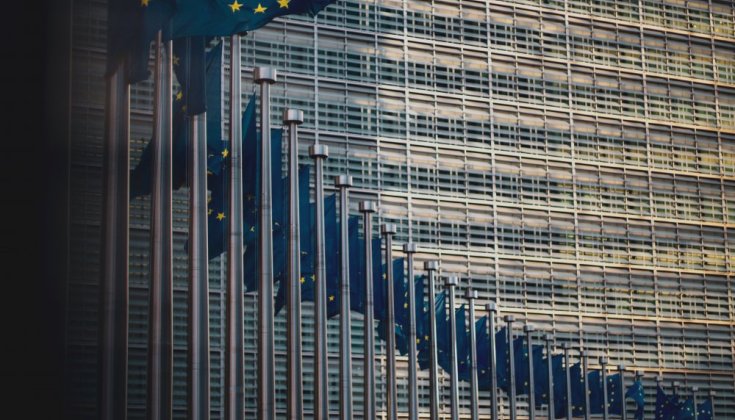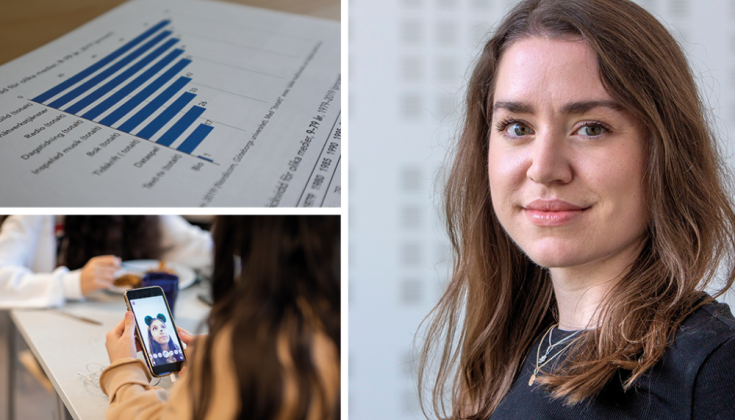News
Find news about Nordic media research and media development together
with news about Nordicom's activities.

Welcome to the webinar about the Media Barometer 2023!
On 14 May, Nordicom will present the results from the 2023 Media Barometer survey (in Swedish). Conducted annually by Nordicom, the survey focuses on how the Swedish population uses media on traditional and digital platforms on an average day. This year, the results will be presented at a webinar published on our website. In connection with this, the full report will also be available to download for free.
Key developments in European media policy
As the EU elections in June approach, much focus is on disinformation, as the European parties pledge to combat it and Big Tech receives recommendations for doing the same. Also, important EU media legislation receives final approval. Read about this and the latest developments in media policy at the EU level in the new issue of the European Media Policy newsletter.
Latest updates about Nordic media policy
The Norwegian Broadcasting Act is about to go through major changes. In Denmark, there are plans to raise the subsidy ceiling in the support system for weekly newspapers, while the Swedish government is considering whether it should introduce a temporary digital transition subsidy for magazines. Finland is reorganising its Ministry of Communications. New Icelandic statistics show that almost half of the media investments in the country goes to foreign players. Read more in April’s Nordic Media Policy newsletter.
Users of alternative media do not reject established news media
The part of the Danish population that uses alternative media does not turn its back on traditional media. On the contrary, they seek news from Danish daily newspapers to a greater extent than the rest of the population, according to a new study from Aarhus University, published by Nordicom at the University of Gothenburg.
New book delves into the future of the Nordic media model
A new anthology, published by Nordicom, explores the future of the Nordic media landscape. The contributors delve into the specificities of Nordic media systems, analysing changes and continuity in the midst of global transformations.
Save the date 14/5: Webinar about the Swedish Media Barometer 2023
On 14 May 2024, Nordicom presents the results from the 2023 edition of the Swedish Media Barometer [Mediebarometern] at a webinar (in Swedish). The Media Barometer is an annual survey focusing on how the Swedish population uses media on an average day.
New special issue explores the challenges of “digital disintegration” in democratic societies
The latest special issue of Nordicom Review addresses the challenges of "digital disintegration" within democratic societies. Eight articles provide in-depth analyses from various perspectives, theoretical lenses, and methodological approaches. From political communication to citizen perspectives, the issue explores the impact of digital transformations on democracy and public debates.
Elisabeth Falk new analyst at Nordicom
In March, Elisabeth Falk starts as a new analyst at Nordicom. She comes most recently from the role of deputy chief analyst at the SOM Institute and brings extensive experience and knowledge in surveys to her new position.
Updated data for MedieSverige 2023
MedieSverige 2023 is a report from Nordicom that consists of descriptions and data about the Swedish media landscape and its development. If you are looking for more recent numbers, there is now an update of the information on which the report’s charts and analyses are based.
European Media Policy – the February issue is out
EU legislations of key importance for the media are soon to receive a final approvement. Meanwhile, the EU is preparing for the upcoming elections in June and disinformation is therefore in focus. The February issue of the European Media Policy newsletter is out.
Workshop on academic publishing for doctoral students
Publishing in international journals is a given for researchers. Nevertheless, it can often be difficult to get an overview of the range of journals and to understand the different steps involved in the publication process. There are many pieces that need to be in place before a manuscript reaches its readers. Among other things, there is a review process where you – as a scholar – make sure that another’s manuscript meets the highest standards of scientific quality. To help sort things out, Nordicom is organising a workshop on academic journal publishing.
